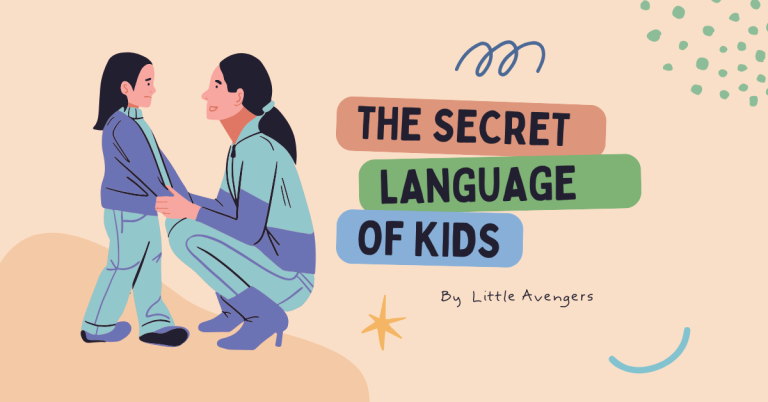Learn Parenting Super Powers!
Okay, fellow parents, let’s be real. There are moments—many of them!—when our little ones seem to speak a language entirely their own. The sudden meltdown over a perfectly symmetrical cookie, the defiant “NO!” to a simple request, or that quiet retreat into silence. In these moments, it’s easy to feel utterly confused, a little frustrated, and maybe even wonder if you missed a chapter in the parenting manual.
But here’s the wonderful truth: your child is always communicating. They’re just using a “secret language” that, once you learn to decode, transforms those head-scratching moments into opportunities for deeper connection and, dare we say, more joy in your day-to-day! Get ready to unlock their world and find solutions that truly make a difference.
Your Child’s Brain: The “Why” Behind the Wonderful Weirdness
Imagine trying to explain a super-complicated math problem when you only know how to count to ten. That’s a bit like our little ones! Their words are limited, their brains are buzzing with huge emotions, and their impulse control is still very much under construction. So, instead of using precise words, they use the tools they have: their actions, sounds, and incredible energy.

Their behavior isn’t about being “naughty” or trying to frustrate you. It’s their unique, sometimes chaotic, way of saying, “Hey, I need something!” or “I feel something big!” Understanding this fundamental truth is your first big step to calmer, happier days.
Decoding Their Secret Messages: Your Instant Solutions Guide!
Let’s break down those baffling moments and reveal what your child is truly telling you, along with your go-to solutions for a smoother ride.
1. The Mighty Meltdown (Especially 1-4 Years Old)
- What it looks like: Crying, screaming, stomping, falling to the floor over seemingly nothing.
- The Secret Message: “I’m completely overwhelmed! My feelings are just too huge for my little body, and I don’t have the words to tell you. I’m probably tired, super hungry, or just utterly frustrated because my world isn’t going exactly my way!”
- Your Solution Strategy:
- Stay Calm (Your Superpower!): Take a deep breath. Your calm is their anchor.
- Acknowledge & Validate: “Oh, sweetie, I see you’re feeling so angry right now because the tower tumbled down. That’s really frustrating!” This simple acknowledgement is like a magic key.
- Offer Comfort & Space: A hug, a quiet corner, or just sitting nearby. Don’t try to reason during the storm; reconnect with gentle words once the intensity fades.
- Teach Later: Once calm, briefly chat about what happened and practice what they could say next time: “Next time you feel super frustrated, you can say, ‘Help me, please!'”
2. The Powerful “NO!” & Boundary Pushing (Especially 2-5 Years Old)
- What it looks like: Refusing requests, running off, doing the opposite of what you asked.
- The Secret Message: “I’m exploring my independence! I’m figuring out who I am, how much control I have, and what the rules of this big world really are. I’m testing limits to see what happens!”
- Your Solution Strategy:
- Be a Rock, Not a Wavering Tree: Consistency is your best friend! If “no” means no today, it means no tomorrow.
- Offer Choices (Your Control Hack!): Instead of a demand, give them a choice within your boundaries: “Do you want to put on the blue pajamas or the green ones?” Not “Do you want to put on pajamas?”
- Firm & Kind Limits: “We don’t throw blocks inside; blocks stay on the floor. If you throw it again, I’ll put it away for a little while.” Focus on what you want them to do.
- Positive Language Wins: “Walk inside, please!” is so much more effective and enjoyable than “Don’t run!”
3. The Constant Cling or Attention-Seeking Antics
- What it looks like: Whining, constant interruptions, silly behaviors, following you everywhere, needing endless help.
- The Secret Message: “I need your connection! I might be feeling a little overlooked, lonely, or just really want to feel seen and important to you right now.”
- Your Solution Strategy:
- Fill Their Cup Proactively: This is a game-changer! Dedicate 10-15 minutes of undivided, phone-free “special time” each day. Play their game, listen intently, give big hugs. It refills their emotional cup so they don’t have to demand sips later.
- Catch Them Being Good: Shower them with positive attention when they are playing nicely or being cooperative. “Wow, I love how quietly you’re playing right now!”
- Teach Polite Interrupting: “When Mommy is talking, you can put your hand on my arm. When I’m done, I’ll turn to you.”
4. The Quiet Retreat or Sudden Shyness
- What it looks like: Hiding behind your legs, avoiding eye contact, becoming quiet, refusing to participate.
- The Secret Message: “I’m feeling overwhelmed, unsure, or maybe even a little worried. I need some space, comfort, or just a moment to process this new situation.”
- Your Solution Strategy:
- Observe & Decode: What just happened? Is it a new place, a new person, or just a new experience?
- Don’t Force: Never push them into social interactions or discussions if they’re clearly not ready.
- Offer a Safe Harbor: “It looks like you need a quiet moment, and that’s totally okay. I’m right here if you need me.” This reassurance is gold.
- Create Cozy Nooks: A special blanket, a fort, or a designated “calm-down” spot where they can retreat and feel secure.
5. The Picky Eater Paradox or Mealtime Battles
- What it looks like: Refusing food, making faces, throwing food, extended mealtime standoffs.
- The Secret Message: “I’m asserting control over my body! Or maybe this food texture/smell/look is genuinely new or unfamiliar, and I’m unsure. I might also not be hungry right now.”
- Your Solution Strategy:
- Your Job: Provide. Their Job: Decide. This simple mantra is liberating! You offer healthy options; they choose what and how much to eat.
- Ban the Battleground: Avoid bribing, forcing, or making mealtimes a power struggle. Keep it positive and low-pressure.
- Gentle Exposure: Keep offering new foods alongside familiar favorites. It can take 10-15 exposures for a child to even consider trying something new. Patience is key!
- Involve Them: Let them help with simple meal prep, like washing veggies or setting the table. They’re more likely to try what they helped create.
Your New Superpower: Becoming a Master Interpreter!
Learning your child’s “secret language” is an ongoing, beautiful adventure. You’re not just parenting; you’re becoming a brilliant detective, uncovering the rich inner world of your little one.

- Observe Like a Scientist: Before reacting, take a breath. What happened just before the behavior started?
- Context is King: Are they tired? Hungry? Overstimulated? These are often the true culprits.
- Connect the Dots: Over time, you’ll start seeing patterns and recognizing the unique messages your child sends. This insight is incredibly empowering!
- Talk About Feelings: As they grow, give them the words for their big emotions: “You seem frustrated,” “Are you feeling sad about that?”
- Remember Your Own Language: Your calm presence, reassuring voice, and loving body language speak volumes. They’re learning their emotional regulation from you.
Decoding your child’s secret language isn’t just about managing behavior; it’s about building a foundation of trust, respect, and deep understanding. It’s about turning daily challenges into moments of connection and transforming your parenting journey into one filled with more ease, more laughter, and incredible joy.
What’s one “secret message” your child often sends that you’re now excited to decode with your newfound parenting superpowers?


0 Comments